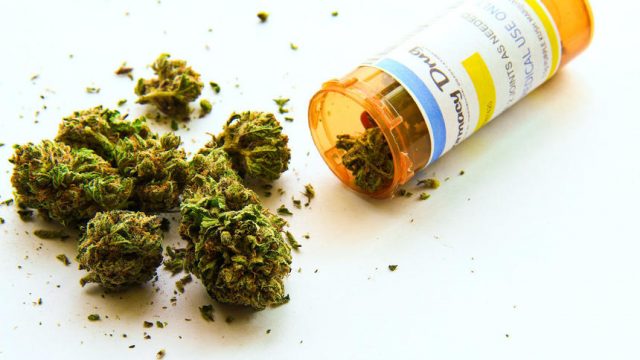Podcast: Will North Dakota’s Government Employees Be Able to Use Medical Marijuana?

On my radio show yesterday Aaron Birst from the North Dakota Association of Counties said his group’s membership is grappling with the reality of implementing new medical marijuana policy as created by voters on the 2016 ballot and amended by lawmakers during their 2017 session earlier this year.
Among the questions they need to answer? How to deal with public employees who opt to use medical marijuana.
Birst said issues like zoning marijuana dispensaries and administering the production and sale of pot will be “child’s play” compared to some of the looming human resources issues governments face.
[mks_pullquote align=”right” width=”300″ size=”24″ bg_color=”#ffffff” txt_color=”#000000″]Birst said issues like zoning marijuana dispensaries and administering the production and sale of pot will be “child’s play” compared to some of the looming human resources issues governments face.[/mks_pullquote]
“This is an even more complicated an issue,” he told me.
What’s complicated is that the federal government, through the Food and Drug Administration, continues to classify marijuana as a Schedule 1 drug. Meaning that, in the eyes of the feds, there is no lawful and legitimate use for it. What’s more, under the Controlled Substances Act, organizations which receive federal funding including state and local governments cannot employ people who use illegal drugs.
Because marijuana, unlike alcohol, continues to be detectable in a user even well beyond the point at which any inebriation has dissipated this becomes a problem.
Birst told me that no level of government wants employees who are high on the job, but what about an employee who tests positive for marijuana use that’s both lawful and not on the job?
There aren’t any easy answers to that question so far. Statewide officials are indicating that they’ll continue with a zero tolerance policy, whether the marijuana use was lawful or not, meaning state employees won’t be free to use medical marijuana without putting their employment at risk.
Birst also said that local governments are concerned about getting a share of tax revenues from marijuana sales and licensing to defray local administrative costs.
Here’s the full audio of our interview. Remember you can tune in to my show weekdays from 12-2pm on 970 WDAY AM and 93.1 FM in the Fargo/Moorhead area, or stream/podcast it online by clicking here.
[fcc_jw_podcast key=”7E0lKnZG”]




